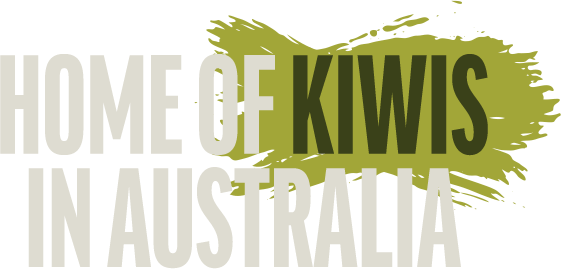
Registry of Births, Deaths & Marriages
National Contact Details
Need to contact the right people in relation to your marriage? Need to source the nearest Birth registry office? Have questions about a recent passing? Look no further all contact information, nation wide is below.
Australian Capital Territory
Phone: 13 22 81
Phone Outside Australia: +61 2 6207 5111
Postal Address: GPO Box 158 CANBERRA CITY ACT 2601
New South Wales
Phone: 13 77 88
Phone Outside Australia: +61 2 8894 1555
Website: https://www.nsw.gov.au/departments-and-agencies/births-deaths-marriages
Northern Territory
Phone:
Darwin & Palmerston: +61 8 8999 6119
Katherine: +61 8 8979 8956
Alice Springs: +61 8 8951 5339
Tennant Creek: +61 8 8962 4377
Email: agd.registergeneral@nt.gov.au
Postal Addresses:
GPO Box 3021 DARWIN NT 0801,
PO Box 8043 ALICE SPRINGS NT 0871 or;
PO Box 84 TENNANT CREEK NT 0861
Website: https://nt.gov.au/law/bdm
Queensland
Phone: 13 74 68
Phone Outside Australia: +61 7 3022 6100
Website: https://www.qld.gov.au/law/births-deaths-marriages-and-divorces
South Australia
Phone: 131 882
Phone Outside Australia: +61 8 8204 8532
Postal Address: GPO Box 1351 ADELAIDE SA 5001
Website: https://www.sa.gov.au/topics/family-and-community/births-deaths-and-marriages
Tasmania
Phone: 1300 135 513
Phone Outside Australia: +61 3 6165 3457
Email: bdm@justice.tas.gov.au
Postal Address: 30 Gordons Hill Road, Rosny Park, Tasmania 7018
Victoria
Phone: 1300 369 367
Phone Outside Australia: +61 3 9613 5111
Postal Address: GPO Box 4332 MELBOURNE VIC 3001
Website: https://www.bdm.vic.gov.au
Western Australia
Phone: 1300 305 021
Phone Outside Australia: +61 8 9264 1555
Email: bdm@justice.wa.gov.au
Postal Address: PO Box 7720 Cloisters Square PERTH WA 6850
Website: https://www.wa.gov.au/organisation/department-of-justice/the-registry-of-births-deaths-and-marriages
What is De Facto?
Current Australian law makes provisions for de facto relationships in the Family Law Act 1975 and its various amendments, which are defined as a relationship in which you and your partner live together as a couple on a “genuine domestic basis”. To be considered a couple, several factors are considered in relation to you and your partner:
Factors Considered Are:
- Your finances – whether they are joint or separate;
- Social relationships – are you publicly a couple, are friends and family aware of your relationship?;
- The nature of your household – who lives in your household, what are the relationships between the people in your household?;
- The presence or absence of a sexual relationship; and
- The nature of the commitment between you and your partner – do you intend to build a future together?
You and your partner do not need to meet all of these criteria. Each relationship is considered on a case by case basis, and the relationship is assessed on the whole, instead of as “ticking enough boxes”.
To be considered as a member of a de facto couple, there is no need for a ceremony or to file any paperwork with Registry of Births Deaths and Marriages. De facto status is something that is awarded automatically, although you may be asked to provide documentation by other government departments if it is relevant to your interactions with them – for example, applying for Centrelink or Medicare benefits.
Getting Married in Australia
Getting married in Australia is currently governed under the Marriage Act of 1961 and its various amendments. The 2017 amendment to the Marriage Act defined marriage in Australia as:
“…the union of 2 people to the exclusion of all others, voluntarily entered into for life.”
Australia will recognise overseas marriage if the marriage was valid in the country it was performed, and would be valid under current Australian law.
To be married in Australia, both you and your partner must fulfill the following criteria:
- Not be married to someone else;
- Not be marrying an immediate family member (e.g. parent, sibling, grandparent);
- Be at least 18 years of age, unless court approved;
- Understand what marriage entails and freely consent to being married without coercion;
- Use specific wording during the ceremony; and
- Lodge a Notice of Intended Marriage (NOIM) form at least one month before the wedding
- The marriage ceremony must be conducted by an authorised marriage celebrant
- Two witnesses over the age of 18 must be in attendance
It is not necessary to be an Australian citizen or permanent resident to be legally married in Australia.
To marry in Australia, your marriage will need to be performed by an authorised celebrant. There are three kinds of authorised celebrants – religious celebrants (Church), civil celebrants (civil ceremony) and state and territory officers (Courthouse or registry). You and your partner will need to fill out a “Notice of Intended Marriage” form and provide it to your celebrant at least one month prior to your wedding, as well as provide documentation in relation to you and your partner’s birth, identity and any previous marriages.
On the day of your wedding, you and your partner will sign multiple copies of a marriage certificate, and the authorised celebrant will register your marriage with the Registry of Births Deaths and Marriages within 14 days. You will need to apply for a copy of the official marriage certificate through the Registry of Births Deaths and Marriages.
If you wish to change your name once you and your partner are married, this does not happen automatically. You will need to apply to the Registry of Births Deaths and Marriages for this to happen.
Registering Your Relationship
It is possible to register a relationship (boyfriends, girlfriends & non-binary) if you are living in New South Wales, Australian Capital Territory, Queensland, South Australia, Tasmania or Victoria. Unfortunately, you can’t do this in Western Australia or Northern Territory.
Registered relationships are entitled to most of the same entitlements as de facto relationships, however, you will need to file paperwork with the Registry of Births Deaths and Marriages in your state and pay a fee if you wish to register your relationship. If you should wish to dissolve a registered relationship, there is a mandatory “cooling off” period, and further paperwork that needs to be filed.
Australian State or Territory law does not recognise relationship registered in other countries, however, you can use this as proof of your de facto relationship.
Dying in Australia
Hopefully, your time in Australia will be a safe and happy one. However, in the event that a death occurs while you are in Australia, there are some steps you will need to take.
When someone dies in Australia, a doctor needs to sign a certificate called a “Doctor’s Certificate of Cause of Death”. You will need this to make arrangements for the funeral and burial, as you will need to provide it to a funeral director, who will arrange for the death to be registered with the Registry of Births Deaths and Marriages.
Following a death, you should contact the nearest New Zealand Embassy and the Ministry of Foreign Affairs and Trade. If the deceased was not living or travelling in Australia with their next of kin or a close family member, the Embassy can arrange for the deceased’s family in New Zealand be notified by the New Zealand Police. The New Zealand Embassy or Ministry will also be able to advise you what options are available in relation to the funeral and burial, including whether it is possible to take the remains back to New Zealand.
The New Zealand Government’s policy in relation to the death of citizens overseas is that all costs in relation to the return of deceased remains to New Zealand and return of their personal belongings remains the responsibility of the family. However, New Zealand citizens may be able to receive a grant from the Accident Compensation Corporation (ACC), depending on how long they have been in Australia.
If the deceased has been receiving payments from the Australian Government, you will need to contact Centrelink to have these payments stopped. For further information about this, please refer to our Financial Support in Australia section.
If the deceased has been working in Australia, someone will need to contact their superannuation fund to deal with the distribution of superannuation funds on their behalf.
This information was updated on 22/05/2024
Moving to Australia
- Banking Options
- Childcare & Early Learning
- Community Services
- Credit Checks
- Driver Licence
- Financial Support
- Getting Connected
- Giving Birth
- Healthcare in Australia
- Insurance
- Legal System
- Marriage Relationships
- Pension Eligibility
- Police Check
- Renting Advice
- Responsible Service of Alcohol
- School Years
- Tax in Australia
- What to Bring
- Working With Children Check





